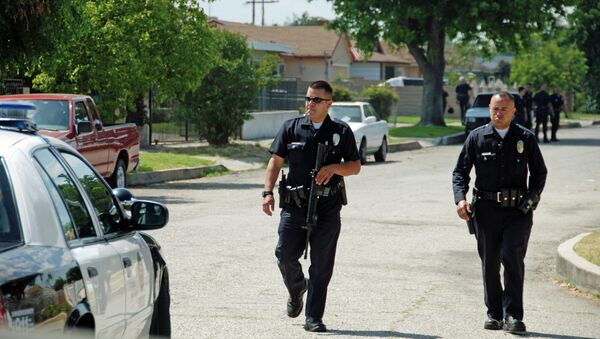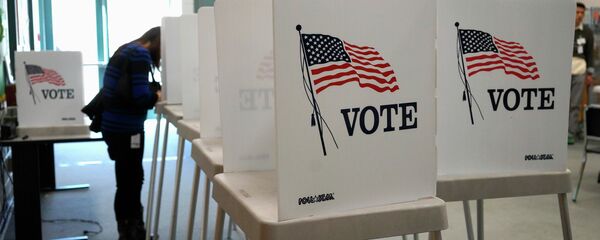WASHINGTON (Sputnik) — Law enforcement across the United States must consider the US Department of Justice’s (DOJ) proposed reforms in its report on the city of Ferguson, Missouri police and court practices, the American Civil Liberties Union (ACLU) said in a statement on Friday.
“It is not just Ferguson that must heed these reforms,” the ACLU stated. “Cities and counties across the country which suffer from similar injustices must pay close attention as well, if we as a country are to end the rampant racial profiling, selective enforcement, and revenue-over-people practices that permeate every corner of this country's criminal justice system.”
The ACLU explained that many of the injustices described in the DOJ’s Ferguson report are repeated daily throughout the United States.
“From the way law enforcement police communities of color like an occupying army to how the court system sees its policing victims as a way to balance the budget on the backs of its most vulnerable citizens, it is clear that policing in the US is a problem,” the ACLU added.
Holder underlined that the DOJ efforts will also extend to other communities throughout the United States.
“What the Justice Department's Civil Rights Division uncovered in Ferguson… isn't just a dark look into an isolated small municipality, it's unfortunately an indictment of American policing in general,” ACLU concluded.
The DOJ report investigated law enforcement practices in Ferguson following the police killing of unarmed African American teenager Michael Brown in 2014.
The 100-page DOJ report revealed that the Ferguson Police Department and municipal court intentionally racially profile African-Americans and violate their Constitutionally-protected rights.
Earlier in the week, US President Barack Obama's Task Force on 21st Century Policing delivered more than 59 recommendations to the White House as part of its interim report. The recommendations include implementing independent investigations of police shootings, greater diversity in police forces reflective of the communities they serve and increased civilian oversight over police and community policing initiatives.



